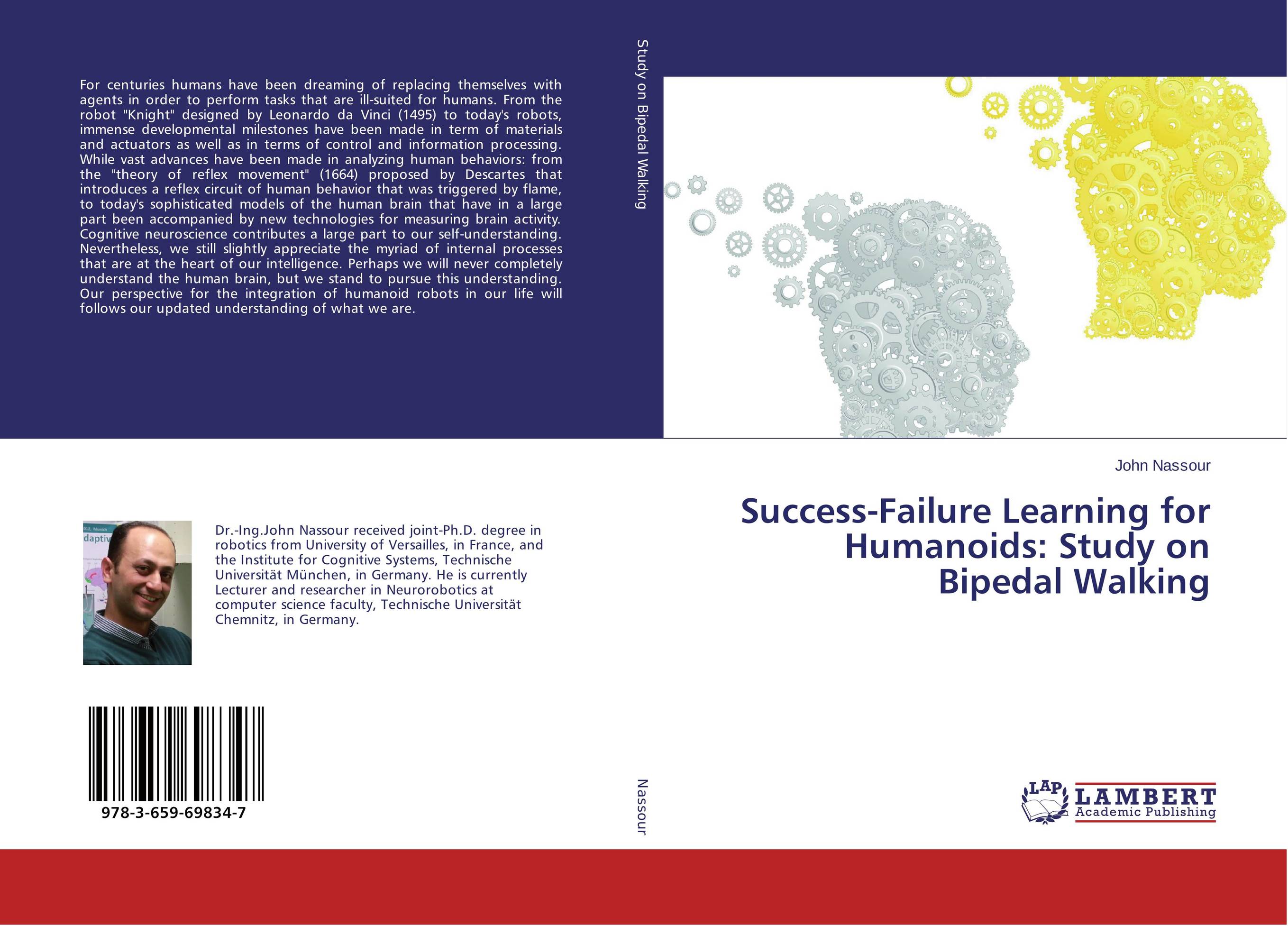| Поиск по каталогу |
|
(строгое соответствие)
|
- Профессиональная
- Научно-популярная
- Художественная
- Публицистика
- Детская
- Искусство
- Хобби, семья, дом
- Спорт
- Путеводители
- Блокноты, тетради, открытки
Success-Failure Learning for Humanoids: Study on Bipedal Walking.

В наличии
| Местонахождение: Алматы | Состояние экземпляра: новый |

Бумажная
версия
версия
Автор: John Nassour
ISBN: 9783659698347
Год издания: 2015
Формат книги: 60×90/16 (145×215 мм)
Количество страниц: 164
Издательство: LAP LAMBERT Academic Publishing
Цена: 42391 тг
Положить в корзину
| Способы доставки в город Алматы * комплектация (срок до отгрузки) не более 2 рабочих дней |
| Самовывоз из города Алматы (пункты самовывоза партнёра CDEK) |
| Курьерская доставка CDEK из города Москва |
| Доставка Почтой России из города Москва |
Аннотация: For centuries humans have been dreaming of replacing themselves with agents in order to perform tasks that are ill-suited for humans. From the robot "Knight" designed by Leonardo da Vinci (1495) to today's robots, immense developmental milestones have been made in term of materials and actuators as well as in terms of control and information processing. While vast advances have been made in analyzing human behaviors: from the "theory of reflex movement" (1664) proposed by Descartes that introduces a reflex circuit of human behavior that was triggered by flame, to today's sophisticated models of the human brain that have in a large part been accompanied by new technologies for measuring brain activity. Cognitive neuroscience contributes a large part to our self-understanding. Nevertheless, we still slightly appreciate the myriad of internal processes that are at the heart of our intelligence. Perhaps we will never completely understand the human brain, but we stand to pursue this understanding. Our perspective for the integration of humanoid robots in our life will follows our updated understanding of what we are.
Ключевые слова: Humanoid robots, Robotics, Robot Learning, Biologically-Inspired Learning



